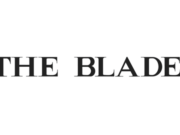This piece originally appeared in the Detroit News on January 13, 2024.
Being sued for simply expressing an opinion seems downright un-American.
Yet, when it comes to speaking out on a matter of public concern, Michigan currently offers no protection whatsoever against that risk.
The risk comes in the form of “SLAPP” suits. “SLAPP” stands for “strategic lawsuit against public participation.” These suits are usually meritless defamation lawsuits that unscrupulous plaintiffs can use to silence speech they don’t like, preventing speakers from exercising their First Amendment rights.
Even a defendant who ultimately prevails can suffer significant, negative financial and emotional impacts by defending such a suit. SLAPPs can also prompt other speakers to refrain from speaking themselves, thus “chilling” speech by incentivizing silence.
Monitoring this aspect of free speech is extremely important to my organization, the Institute for Free Speech. We recently released our 2023 Anti-SLAPP Report Card, which analyzes anti-SLAPP protections in all 50 states plus DC.
Unfortunately, Michigan earned a grade of “F,” as it has no anti-SLAPP protection at all. Its overall score was the worst possible: zero out of 100 points.
The complete lack of protections against SLAPPs means that Michiganders are less free to comment on political issues or other matters of public concern without the risk of having their speech silenced by deep-pocketed plaintiffs.
Michigan’s poor grade is also at odds with a growing national trend toward stronger anti-SLAPP laws. In fact, neighboring Indiana earns a score of 85, good enough to earn a “B+” grade. And, for the first time, over half of Americans now live in a state with strong anti-SLAPP protections.
What can Michigan do to improve free-speech protections for its citizens?
As our report explains, policymakers will ideally seek to enact a strong anti-SLAPP statute that will track the Uniform Public Expression Protection Act (UPEPA), as proposed by the nonpartisan Uniform Law Commission. The 2020 publication of UPEPA, a model anti-SLAPP statute, helped to create the positive trend toward stronger anti-SLAPP laws around the country. UPEPA contains critical provisions that deter SLAPPs and minimize litigation costs for defendants.
These provisions require plaintiffs to show they have a legitimate case early in the proceedings and provide defendants with a right to an immediate appeal if the court denies the anti-SLAPP motion. UPEPA-based laws also permit winning defendants to recover an award of costs and attorney fees and instruct judges to interpret the law’s speech protections broadly.
Currently, the people of Michigan have no such law.
Yet, there is hope. Six states have already used UPEPA to enact new or improved laws since the 2022 edition of the Anti-SLAPP Report Card. States that have enacted legislation modeled after UPEPA have quickly ascended to the top of the national rankings in our Anti-SLAPP Report Card. Nearby Iowa and Minnesota are currently considering UPEPA bills that, if passed, would instantly elevate their grades to the upper tier of states.
States that pass UPEPA anti-SLAPP laws also normally do so with deep bipartisan support. New Jersey, the most recent state to pass UPEPA, did so unanimously in both houses of its legislature.
The broad, deep support for these laws speaks to the cross-party appeal of anti-SLAPP laws. Ideologically diverse lawmakers and allies find common ground in supporting the crucial mission of safeguarding everyone’s right to free speech.
In fact, an ideologically diverse coalition of 28 organizations, of which the Institute for Free Speech was an organizing member, published an open letter in support of the Uniform Law Commission’s model UPEPA last year. Signers included National Right to Life, the ACLU, Competitive Enterprise Institute, League of Conservation Voters, and the International Association of Better Business Bureaus.
Only a cause connected to such a fundamental right could unite such an eclectic group of organizations. And that cause is an especially urgent one in states like Michigan that afford no protection against SLAPPs to its citizens.
Michiganders deserve to speak freely without fear of meritless lawsuits. Lawmakers should address this issue by passing an anti-SLAPP law that tracks UPEPA. Doing so would help ensure that speakers in Michigan can better access their First Amendment right to free speech.
David Keating is the President of the Institute for Free Speech and a co-author of the 2023 Anti-SLAPP Report Card














